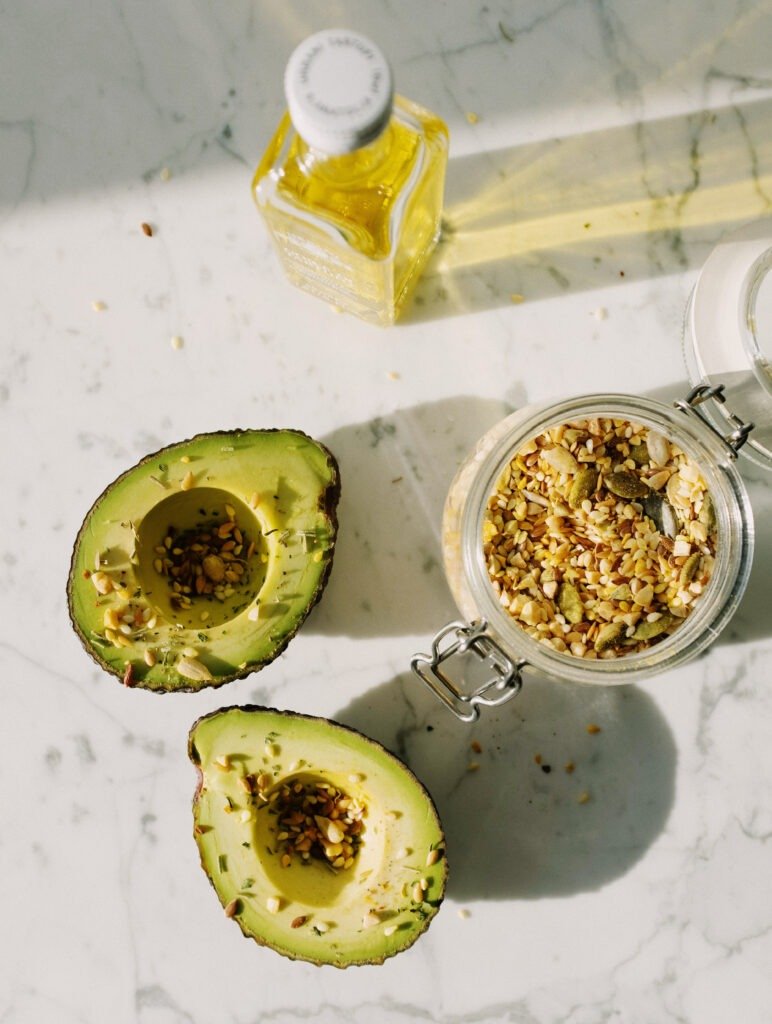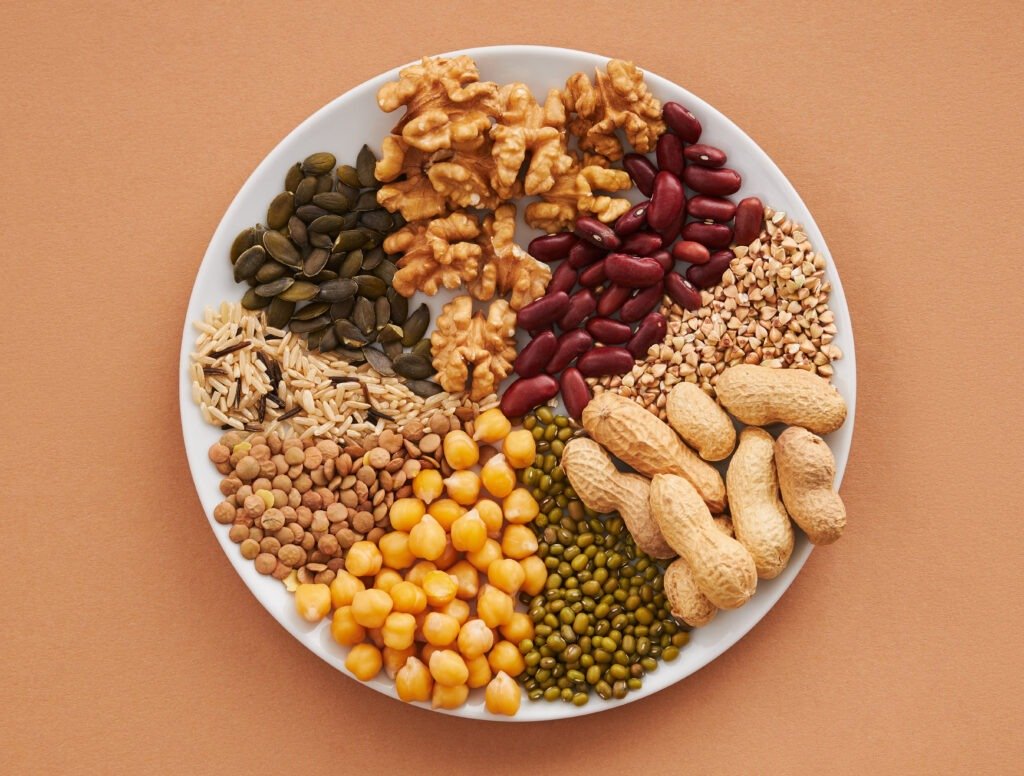Plant-Based Diet for Optimal Heart Health and Wellness

Introduction to Switching to a Plant-Based Diet
Switching to a plant-based diet has become an increasingly popular lifestyle choice for individuals looking to prioritize their heart health. But what exactly does it mean to follow a plant-based diet? Unlike vegetarian or vegan diets, a plant-based diet doesn’t necessarily eliminate all animal products. Instead, it emphasizes consuming mostly plant-derived foods while allowing for the occasional inclusion of animal products. This flexible approach makes it easier for many people to embrace and sustain a plant-based lifestyle.
The Impact of Diet on Heart Health
We all know that our diet has a profound impact on our overall health, and the same holds for our heart health. What we put into our bodies can either support or hinder the health of our cardiovascular system. By adopting a plant-based diet, you are making a conscious effort to prioritize your heart’s well-being. Plant-based foods are generally low in saturated fats and cholesterol, which are known contributors to heart disease. Instead, they are rich in heart-healthy nutrients such as fiber, antioxidants, and phytochemicals.
Debunking Common Misconceptions about Plant-Based Diets
Before delving deeper into the science behind the connection between plant-based diets and heart health, let’s address some common misconceptions. One prevalent myth is that plant-based diets lack essential nutrients. However, with proper planning and variety, it is entirely possible to obtain all the necessary nutrients, including protein, vitamins, and minerals, from plant-based sources. Another misconception is that plant-based diets are monotonous and restrictive. On the contrary, embracing a plant-based lifestyle opens the door to a variety of flavors and culinary creativity, as you explore the world of vibrant fruits, vegetables, whole grains, legumes, nuts, and seeds.
The Science behind Plant-Based Diets and Heart Health

Now that we’ve cleared up some misconceptions, let’s delve into the scientific underpinnings of how plant-based diets can positively impact heart health.
Lowering Cholesterol Levels through Plant-Based Diet
One of the main contributors to heart disease is high cholesterol levels. By adopting a plant-based diet, you can effectively reduce your cholesterol levels and minimize the risk of developing heart-related complications.
The Role of Fiber Cholesterol Reduction in Plant-based diet
Fiber, which is abundant in plant-based foods, plays a crucial role in reducing cholesterol levels. Soluble fiber specifically helps block the absorption of cholesterol into the bloodstream, resulting in lower overall cholesterol levels. Foods such as oats, barley, legumes, and fruits like apples and oranges are excellent sources of soluble fiber, making them essential components of a heart-healthy plant-based diet.
Plant Sterols and their Effect on Cholesterol Absorption
Plant sterols are natural compounds found in plant-based foods that have been shown to inhibit cholesterol absorption. These compounds closely resemble cholesterol in structure, effectively blocking the intestinal absorption of dietary cholesterol. Plant sterols can be found in varying amounts in foods such as nuts, seeds, legumes, whole grains, and vegetable oils.
Navigating the Relationship between Saturated Fats and Cholesterol
Saturated fats, predominantly found in animal-derived products, are known to raise cholesterol levels and contribute to heart disease. By reducing or eliminating these high-fat animal foods and instead opting for plant-based alternatives, you can significantly lower your intake of saturated fats, thereby improving your heart health. Plant-based sources of fats, such as avocados, nuts, and seeds, provide healthy unsaturated fats that are beneficial for the heart.
Managing Blood Pressure with Plant-Based Diet

High blood pressure, or hypertension, is another leading cause of heart disease. Luckily, a plant-based diet can help manage blood pressure levels and support healthy cardiovascular function.
The Link Between Sodium, Potassium, and Blood Pressure
A key factor in regulating blood pressure is maintaining a proper balance between sodium and potassium levels in the body. While sodium, often consumed in excess in the standard Western diet, can raise blood pressure, potassium has the opposite effect. Plant-based foods are naturally low in sodium and rich in potassium, making them an ideal choice for managing blood pressure. Fruits, vegetables, legumes, and whole grains are all excellent sources of potassium.
Nitric Oxide and its Vasodilatory Properties
Nitric oxide is a molecule naturally produced by the body that helps dilate blood vessels, improving blood flow and reducing overall blood pressure. Plant-based diets are rich in nitric oxide-promoting nutrients, such as leafy greens, beets, and citrus fruits. By consuming these foods regularly, you can enhance the body’s production of nitric oxide, supporting optimal heart health.
Antioxidants and their Role in Supporting Healthy Blood Vessels
Plant-based foods are renowned for their high antioxidant content, which helps protect the body against oxidative stress and inflammation. These antioxidants also play a vital role in maintaining the health of blood vessels. Berries, dark leafy greens, and colorful vegetables are especially potent sources of antioxidants and should be incorporated into a heart-healthy plant-based diet.
Reducing Inflammation through Plant-Based Diet
Chronic inflammation is a key driver of various cardiovascular diseases. Fortunately, a plant-based diet offers a myriad of anti-inflammatory compounds that can help reduce inflammation throughout the body.
The Impact of Plant-Based Antioxidants on Inflammation
As mentioned earlier, antioxidants found in plant-based foods are instrumental in combating inflammation. By neutralizing harmful free radicals, these antioxidants help protect blood vessels from damage and reduce the overall inflammation burden on the body.
Omega-3 Fatty Acids: Plant Sources vs. Fish Sources
Omega-3 fatty acids have long been associated with heart health due to their anti-inflammatory properties. While fatty fish is traditionally considered an abundant source of omega-3s, plant-based sources are equally valuable. Flaxseeds, chia seeds, walnuts, and hemp seeds are excellent plant-based alternatives that provide the body with omega-3 fatty acids without the potential risks associated with consuming high levels of mercury often found in fish.
Phytochemicals: Nature’s Inflammation Fighters
Phytochemicals are bioactive compounds found exclusively in plant-based foods. These compounds possess anti-inflammatory properties that help combat inflammation at the cellular level. Examples of phytochemical-rich foods include turmeric, ginger, garlic, and green tea. By incorporating these foods into your plant-based diet, you can harness their powerful inflammation-fighting benefits.
Implementing a Balanced Plant-Based Diet for Heart Health
Now that we understand the scientific evidence supporting the heart-healthy benefits of a plant-based diet, let’s explore how to implement this diet in a practical and balanced way.
Essential Nutrients in Plant-Based Foods
Some people worry that a plant-based diet may not provide adequate protein intake. However, with proper planning and variety, obtaining all the necessary protein from plant-based sources is possible. Foods such as legumes, tofu, tempeh, quinoa, and edamame are rich in protein and can be easily incorporated into meals. Additionally, vitamin B12, primarily found in animal-derived products, should be supplemented with fortified foods or supplements. Lastly, calcium sources beyond dairy products can be obtained from leafy greens, fortified plant-based milk, and calcium-set tofu.
Embracing Diversity in Whole Plant Foods
To maximize the benefits of a plant-based diet, it’s essential to embrace the diversity of whole-plant foods.
Exploring a Rainbow of Fruits and Vegetables

Aim to consume a wide variety of fruits and vegetables of different colors, as each color indicates a unique array of vitamins, minerals, and antioxidants. Vibrant berries, dark leafy greens, orange sweet potatoes, and cruciferous vegetables like broccoli and cauliflower should all find their way onto your plate.
Unleashing the Power of Whole Grains and Legumes

Whole grains like quinoa, brown rice, oats, and whole wheat provide essential nutrients and fiber to support heart health. Meanwhile, legumes such as lentils, chickpeas, and black beans are excellent sources of protein, fiber, and minerals. Incorporating whole grains and legumes into your meals will provide necessary sustenance while diversifying your nutrient intake.
Incorporating Healthy Fats from Nuts and Seeds
While it’s important to limit overall fat intake, incorporating healthy fats from nuts and seeds can provide essential nutrients and satiety. Almonds, walnuts, flaxseeds, and chia seeds are excellent choices to add healthy fats to your plant-based meals.
Click Here to Learn More about Plant-based Diet for Heart Health
Practical Tips for Transitioning to a Plant-Based Lifestyle
Transitioning to a plant-based lifestyle may seem daunting at first, but with some practical tips, you can navigate the journey with ease.
Gradual Approach vs. Immediate Change: Finding Your Comfort Zone
Some individuals prefer to make a gradual transition by gradually incorporating more plant-based meals into their diet, while others may opt for an immediate change. Choose the approach that suits your individual needs and comfort level. Experiment with new recipes, substitute meat with plant-based proteins and gradually replace dairy products with plant-based alternatives.
Meal Planning and Preparing Plant-Based Recipes
Plan your meals to ensure a balanced and varied plant-based diet. Explore plant-based cookbooks, websites, and social media platforms for inspiration and recipes. Preparing meals at home allows you to have full control over the ingredients, enabling you to prioritize heart-healthy options.
Navigating Social Situations and Overcoming Challenges
Social situations and dining out can present challenges when following a plant-based lifestyle. To navigate these situations, communicate your dietary preferences with friends and family in advance. Offer to bring a dish to gatherings to ensure there are plant-based options available. When dining out, research and choose restaurants that offer plant-based choices or contact the restaurant in advance to inquire about options.
Maintaining Heart Health through a Lifelong Plant-Based Journey

Switching to a plant-based diet is just the first step in nurturing your heart. To maintain long-term heart health, it is essential to complement your diet with exercise, regular health check-ups, and a supportive network.
The Role of Exercise in Combination with Plant-Based Eating
Physical activity is crucial for overall heart health and complements the benefits of a plant-based diet.
Promoting Cardiovascular Fitness and Weight Management
Regular exercise helps improve cardiovascular fitness, which supports heart health by reducing the risk of heart disease and maintaining healthy weight. Engage in activities that elevate your heart rate, such as brisk walking, jogging, cycling, or swimming, for at least 150 minutes per week.
Enhancing Heart Health through Regular Physical Activity
Exercise also enhances heart health by improving blood flow, reducing inflammation, and lowering blood pressure. Aim for a combination of cardiovascular exercises, strength training, and flexibility exercises to reap the maximum benefits.
Incorporating Strength Training for Optimal Overall Well-being
Strength training is a vital component of maintaining optimal overall well-being. It helps build muscle mass, improve bone density, and boost metabolism. Incorporate strength training exercises, using resistance bands or weights, into your exercise routine at least two days a week.
Monitoring Heart Health Progress and Consulting Professionals
While a plant-based diet can greatly support heart health, it is crucial to monitor your progress and consult healthcare professionals for individualized guidance.
Regular Check-ups and Tracking of Key Health Indicators
Schedule regular check-ups with your healthcare provider to monitor indicators of heart health, such as blood pressure, cholesterol levels, and weight. Tracking these key measurements will help you assess the progress and ensure that your plant-based diet is effectively supporting your heart health.
Collaborating with Healthcare Providers for Individualized Guidance
Consulting with healthcare professionals, such as registered dietitians, can provide valuable guidance and ensure that you are meeting your nutritional needs while following a plant-based diet. They can help personalize your dietary plan and address any specific concerns or challenges you may face.
Utilizing Technology and Apps for Maintaining Heart Health
In this digital age, numerous mobile applications and wearable devices are available to help track your heart health progress. From fitness trackers to food diary apps, leveraging technology can provide real-time feedback, track physical activity, and monitor nutritional intake, aiding you in maintaining optimal heart health.
Sharing the Plant-Based Journey and Inspiring Others
Once you embark on your plant-based journey and experience the positive impacts on your heart health, you can play a significant role in inspiring others to adopt a similar lifestyle.
Cultivating a Supportive Network
Join online communities, attend local meet-ups, or engage with social media platforms to connect with like-minded individuals who share a passion for plant-based living. Surrounding yourself with a supportive network can provide encouragement, share experiences, and exchange valuable tips and recipes.
Advocating for Sustainable and Plant-Based Initiatives
As you become more knowledgeable about the benefits of a plant-based diet, consider advocating for sustainability and plant-based initiatives in your community. Share the knowledge you’ve gained, raise awareness about the positive impacts on heart health, and inspire others to make informed choices for their well-being.
Leading by Example: Raising Awareness about Heart Health
By embodying the benefits of a plant-based diet in your own life, you can effectively raise awareness about heart health. Share your journey, and the positive impact on your well-being, and educate others about the potential benefits of embracing a plant-based lifestyle.
Summary
Switching to a plant-based diet offers a promising pathway to nurturing your heart and achieving optimal overall health. By understanding the science behind plant-based diets and heart health, implementing a balanced plant-based diet, and complementing it with exercise and regular check-ups, individuals can effectively support their heart health and inspire others to embark on this journey. Embrace the power of plants, prioritize your heart’s well-being, and savor the many flavors and benefits that a plant-based lifestyle can offer.
Frequently Asked Questions
A. Can a plant-based diet provide all the necessary nutrients for heart health?
Absolutely! With proper planning, a plant-based diet can provide all the necessary nutrients for heart health. By incorporating a variety of plant-based foods and considering supplementation for nutrients like vitamin B12, individuals can thrive on a plant-based diet.
B. What are some realistic steps for transitioning to a plant-based lifestyle?
Start by gradually incorporating more plant-based meals into your diet, focusing on whole-plant foods such as fruits, vegetables, whole grains, legumes, nuts, and seeds. Experiment with new recipes, and meal plan in advance, and seek inspiration from plant-based cookbooks and online resources.
C. Can a plant-based diet truly reverse heart disease?
When it comes to heart disease, a plant-based diet can work wonders in reversing its effects. It may sound surprising, but studies have shown that adopting a plant-based lifestyle can have a profound impact on both preventing and reversing heart disease. How does it work? Well, it all comes down to the power of plants.
- Plant-rich foods, such as fruits, vegetables, whole grains and legumes, are packed with essential nutrients and antioxidants that support heart health. These natural wonders help reduce inflammation, lower cholesterol levels, regulate blood pressure, and improve overall blood circulation.
“Switching to a plant-based diet is like giving your heart a big, warm hug every single day.” – Anonymous
- Numerous research studies have demonstrated the positive effects of a plant-based diet on heart health. For example, a study conducted by Dr. Dean Ornish showed that participants who followed a plant-based diet, engaged in regular exercise, and practiced stress management techniques not only experienced a reduction in artery blockages but also a reversal of heart disease.
> “Who would have thought that something as simple as changing our diet could have such a remarkable impact on our heart health? Mother Nature truly holds the key to our well-being.” – Anonymous
D. Is it possible to build muscle and support athletic performance on a plant-based diet?
Absolutely! Contrary to common misconceptions, a plant-based diet can provide all the nutrients necessary to fuel an active lifestyle and promote muscle growth. In fact, many professional athletes have already embraced the power of plants and witnessed remarkable improvements in their performance.
- High-protein plant-based foods, such as tofu, beans, lentils, quinoa, and tempeh, are excellent sources of protein that can support muscle growth and recovery. Additionally, plant-based protein powders, like pea protein or hemp protein, offer a convenient way to supplement protein intake for those with higher protein requirements.
“Gone are the days when athletes believed they needed animal products to excel in their field. Plants have proven time and time again that they can provide the fuel needed to reach new heights in athletic performance.” – Anonymous
- Plant-based diets are rich in complex carbohydrates, which are essential for sustained energy during workouts. Whole grains, such as brown rice and oats, provide a slow release of energy, helping athletes perform at their best without experiencing energy crashes.
“Fueling your body with plants is like stepping on the accelerator pedal of performance. Say goodbye to feeling sluggish and hello to unstoppable energy!” – Anonymous
E. How can I ensure my plant-based diet is both environmentally and socially sustainable?
Adopting a plant-based diet not only enhances personal health but also champions environmental and social sustainability. To ensure your plant-based journey aligns with these principles, consider the following tips:
- Embrace locally grown and organic produce whenever possible. This choice supports local farmers, reduces your carbon footprint, and fosters a meaningful connection with the Earth.
“Choosing locally grown produce nurtures a bond with Mother Earth, connecting us to the land and supporting those dedicated to providing fresh, wholesome food.” – Anonymous
- Opt for sustainable plant-based protein sources like legumes, nuts, and seeds. This not only supplies essential nutrients but also diminishes reliance on resource-intensive animal agriculture. Seek products from companies committed to ethical sourcing practices.
“Backing companies with sustainable sourcing practices applauds those striving to build a better, more ethical food system. Together, our choices make a significant impact.” – Anonymous
- Minimize food waste through thoughtful meal planning and creative use of leftovers. Being mindful of consumption reduces the environmental impact of food waste. Transforming leftovers into delicious new meals showcases the power of creativity in sustainability.
“In the fight against food waste, creativity becomes our secret weapon. Let leftovers be the canvas for culinary masterpieces, saving the planet and delighting our taste buds.” – Anonymous
By making informed choices and understanding the environmental and social implications of our dietary decisions, we actively contribute to a healthier planet and pave the way for a more sustainable future.
“Adopting a plant-based diet isn’t just about nourishing our bodies; it’s about nurturing the world around us. Together, let’s build a legacy of sustainability.”




One thought on “Plant-Based Diet for Optimal Heart Health and Wellness”